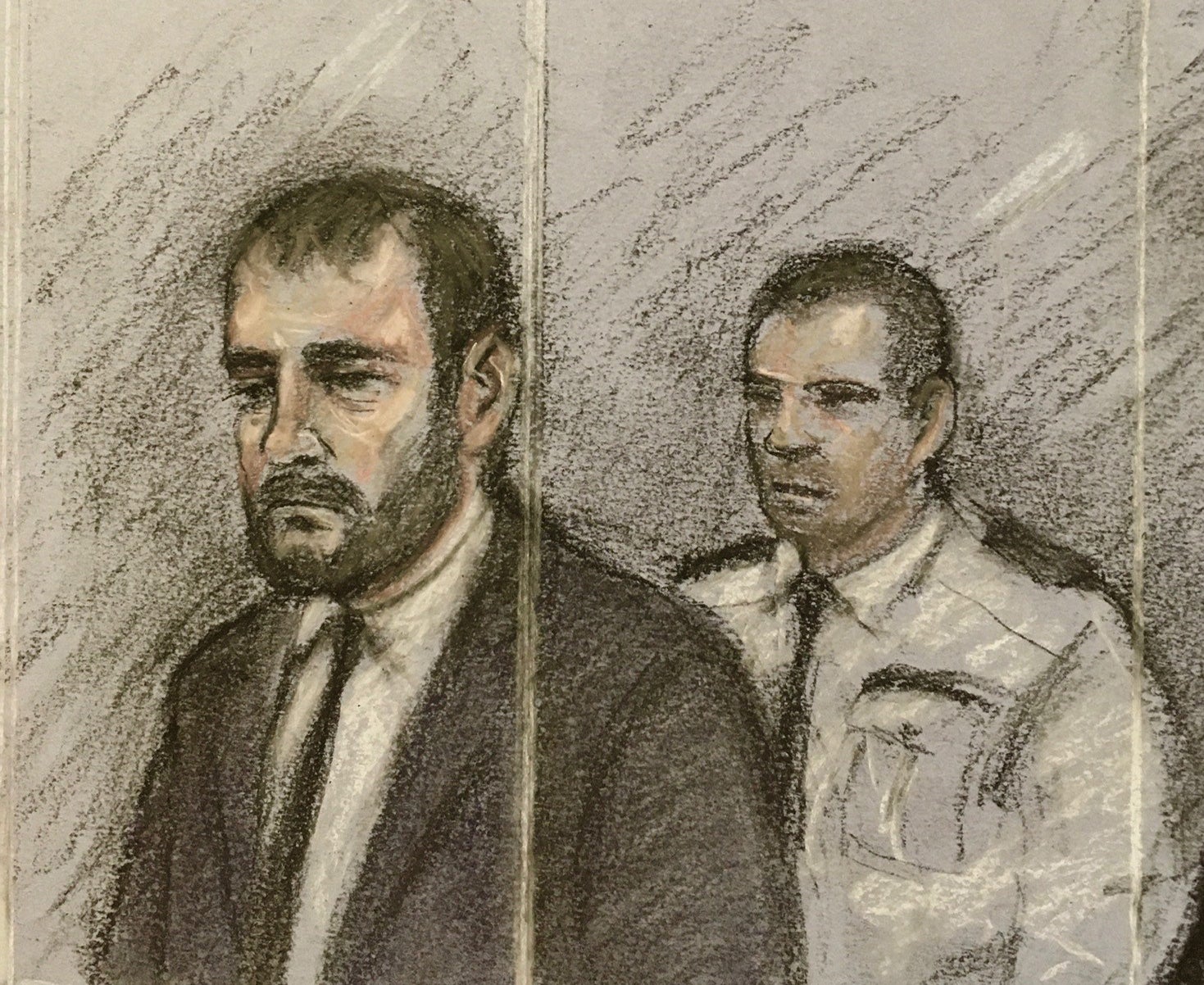Ex-soldier convicted of murdering neighbours
Former Royal Engineer Collin Reeves stabbed his neighbours Stephen and Jennifer Chapple to death in their home in Norton Fitzwarren in Somerset.

An Afghanistan veteran who stabbed his neighbours in their home while their children slept upstairs following a row over parking has been convicted of their murders.
Collin Reeves knifed young married couple Stephen and Jennifer Chapple six times each at their house in Dragon Rise, Norton Fitzwarren, near Taunton in Somerset, on the evening of November 21 last year.
Reeves, also of Dragon Rise, had been involved in a long-running dispute with the couple over designated parking on the new-build housing development.
The 35-year-old former Royal Engineer used the ceremonial dagger given to him when he left the Army to kill the couple.
He was caught on a security camera climbing the fence separating his garden from the victims’ garden, and entering through the back door.
A few seconds later Mrs Chapple can be heard screaming in terror, with Reeves shouting “die you f****** die”.
Mrs Chapple, 33, did not even have a chance to stand up from the sofa to defend herself while Mr Chapple, 36, was found close to the rear door.
Reeves called the police to tell them what he had done, but later denied murder and instead pleaded guilty to manslaughter on the grounds of diminished responsibility.
On Friday, a jury at Bristol Crown Court found him guilty of two counts of murder after five hours and 21 minutes of deliberations.
Reeves did not react as the verdicts were read out but his wife Kayley wept and was able to hold her husband’s hand in the gaps in the glass of the dock for a few seconds before he was led to the cells.
The Chapples’ family, who were seated in the public gallery, held hands as the verdicts were returned and many of them were in tears.
The court heard the Chapples and Reeves previously had a good relationship but it had deteriorated when Mrs Chapple learned to drive and bought a second car.
Rows over parking spaces escalated to the point that both Reeves’ wife Kayley and Mrs Chapple had told their friends they were anxious about bumping into each other on the school run.
Ten days before the killings, Reeves was caught on a door bell camera approaching Mrs Chapple outside her house following an earlier exchange between her and Mrs Reeves.
He accuses Mrs Chapple of “f***ing gobbing off you cheeky little bitch”.
The victim replies “she’s the one who started it, just f*** off”, to which he responds “what’s that you f****** c***, you fat bitch, you f****** … f****** c***”.
The Reeves had also been having trouble in their marriage, and less than an hour before he stabbed the Chapples, Mrs Reeves had asked her husband for a trial separation.
After the killings, Reeves was recorded in the background of the 999 call telling someone, believed to be his mother Lynn, “I couldn’t let her (or them) torment Kayley any more”.
Reeves said he had little memory of the incident but recalled sitting on the stairs in tears after the conversation with his wife.
He claimed he did not remember taking his dagger out of the picture frame in which it was usually displayed.
The defendant, who had previously recounted his fear of CCTV cameras and being under surveillance, said the next thing he recalled was a bright light coming on, and trying to get down on his front.
“I felt as though I had been seen or compromised, white light was a trigger when I was a soldier, when a light goes on or somebody sets off a flare, when that white light goes up something is going to happen,” Reeves said.
Asked what else he remembered, the defendant said: “I had a feeling like it was me or them.”
Adam Feest QC, prosecuting, asked: “When your wife said you needed to have a separation, did you at least, in part, blame Jennifer because she had tormented (your wife)?” the prosecutor asked.
Mr Feest added: “I can’t let her or them ‘torment Kayley’ – I want to suggest that this is an accurate expression of why you went around to your neighbours that night. I’m going to suggest that’s the truth.”
At the police station he appeared confused and gave his name as “Lance Corporal Reeves, sir” and his service number.
Two forensic psychiatrists concluded Reeves was not suffering from post-traumatic stress disorder or psychosis, but diagnosed him with moderate and mild depression respectively.
Both said he could be suffering from “dissociative amnesia” – a condition common in perpetrators of domestic homicide when they are unable to process what they have done.
Dr John Sandford, for the prosecution, said: “This is nothing to do with depression – it’s a reaction to a traumatic act, something that is usually a reaction to something you’ve done rather than something done to you.”
Mr Justice Garnham adjourned Reeves’ sentencing hearing until Tuesday and thanked the jury for their work on the case.
In a statement, the Chapples’ loved ones said: “No verdict will bring back our beautiful Jennifer and Stephen.
“If anything, these past 10 days have prolonged us finding out how Jennifer and Stephen spent their final moments.”
They added: “We will now focus on Jennifer and Stephen’s beautiful boys, helping them to live the life that Jennifer and Stephen would have wished for them.”
